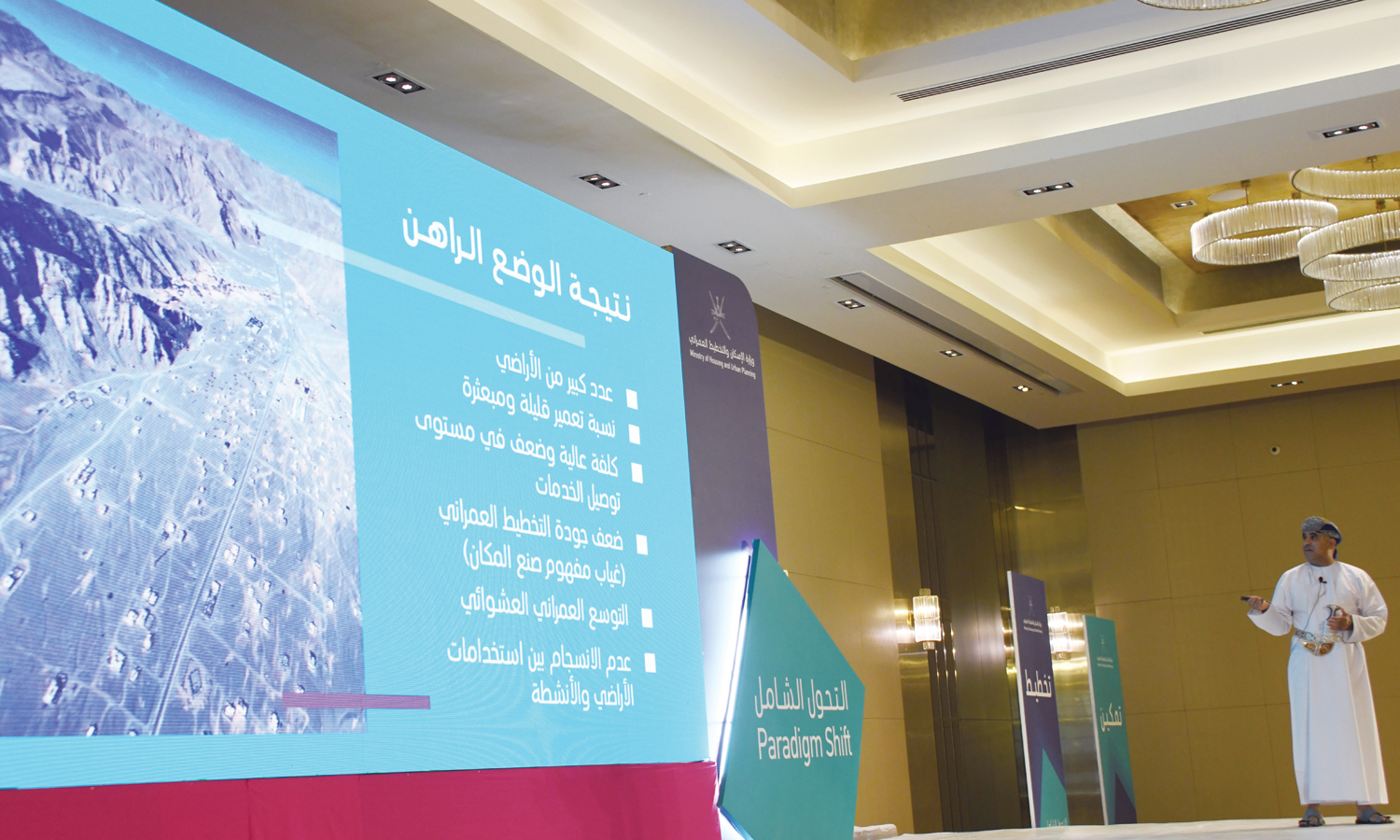

A new draft law will be ready in the last quarter of 2021, which will be also marked as the year of transparency, said the government on Monday.
Dr Khalfan bin Said al Shueili, Minister of Housing and Urban Planning, said: “The new plans and focus are necessary because the population of Oman is expected to reach between 7.1 and 7.5 million by 2040, which may need around 911,400 more housing units’’, he said.
Speaking to the media, he said that there has been an accumulation of housing applications registered in some governorates since 2008 due to the non-availability of suitable lands in those regions.
“As part of its efforts to achieve the main objective of granting lands to those who deserve it, the ministry continues to necessary plans to accommodate the largest possible amount of these requests. The plan for 2021 includes the distribution of 23,066 plots of land in the various governorates of the Sultanate.”
Nearly 60 per cent (269,316) of the total requests (447,612,) for land were received from women, the ministry revealed on Monday.
The plan for 2021 will be in line with the national priorities of Vision 2040 and based on the National Urban Development Strategy — performance indicators, initiatives and ambitious projects. The ministry’s strategy is based on a basic foundation, which is the institutional culture. It is based on four priorities and with clear objectives: Competencies and capacity building, digital transformation, governance and legislation, identity and communication.
On the issue of allowing vertical development, the minister said one of the distant features of Muscat is that it is free of skyscrapers, but that does not mean the door to vertical expansion — towers and skyscrapers — is closed. He said the vertical model of development has its benefits in delivering services and infrastructure at lower costs and faster.
Meanwhile, a ministry official said that what is being said about granting of lands worth tens of thousands of square metres to one person is unfounded.

“The mixing of land uses within a single scheme was common in the past, and during recent years the existence of lands with different uses has become a norm for the purpose of serving the needs of governorates and plans within the community,” he said.
Nearly 40 per cent of the buildable lands owned by citizens are not yet built in Muscat. The rate of reconstruction in residential lands during the past 10 years range between 2-19 per cent.
The number of requests received by the minister earlier was 50,000, at a rate of 150 requests per day. The minister’s role is not to work at the executive level, and the minister’s office gets only 10 requests per day. The main points highlighted on Monday are while there are large number of land plots available they are scattered with a slow reconstruction rate. The reasons include high costs and poor service delivery, poor quality of urban planning, random urban expansion, and inconsistency between land use and activities.
Dr Al Shueili stressed that the new team has put in place a structure with a future to push it towards the right direction and to achieve the vision of 2040.
To a question about the ministry’s intention to withdraw some large, unused lands, he said, “There is no legal basis and no clause in the laws offers a provision for this.”
The ministry will launch 59 new electronic services in 2021 covering various sectors — housing, urban planning, real estate development, real estate registry, lands, customer services, which will speed up the provision of services and ease of obtaining them.
The government is working on implementing several initiatives aimed at providing adequate housing for low-income groups in partnership with the private sector or through real estate development programmes.
Oman Observer is now on the WhatsApp channel. Click here



